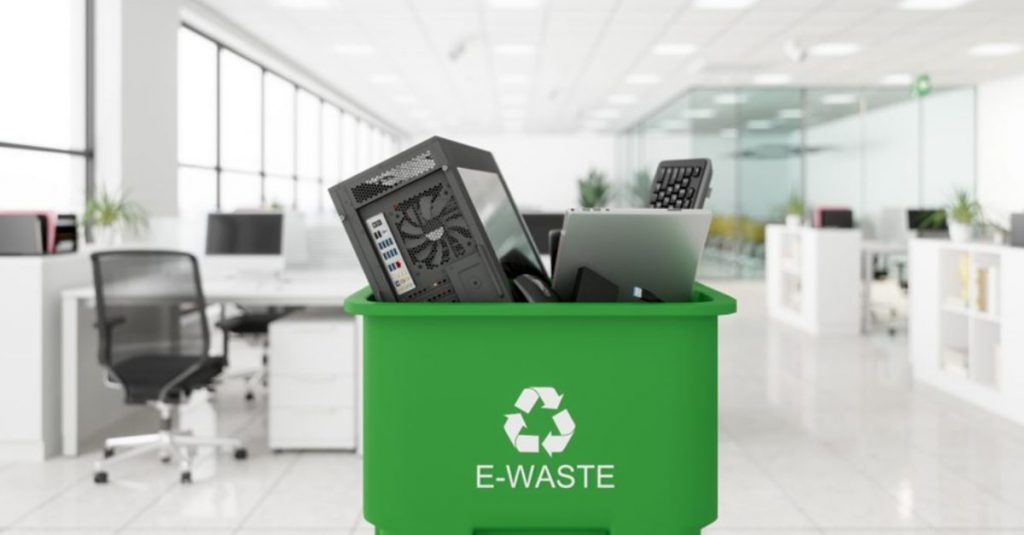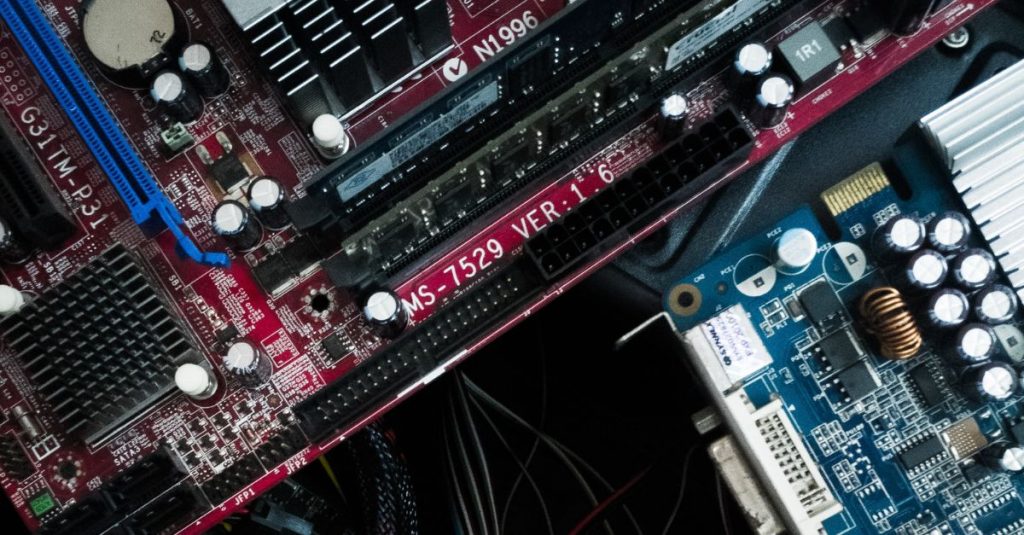Every year on 14th October, International E-Waste Day highlights the massive problem of electronic devices being disposed of incorrectly. In 2022, the United Nations suggested that global e-waste now stands at around 57.4 million tons per year. It accounts for 70% of the world’s hazardous waste. Yet you’ll be shocked to learn that just 17.4% has been certified as responsibly recycled. The majority of e-waste is currently polluting landfill sites, while a high number of unused laptops and smartphones are hidden away in people’s homes. Every day, we need to be aware that electronic e-waste can actually be disposed of correctly.

What is E-Waste?
E-waste refers to anything electronic, including household gadgets. However, the vast bulk of e-waste is IT equipment, whether it’s worn out or not. To give you an idea of the scale of worldwide e-waste, imagine 800 laptops being thrown away every second. All IT equipment contains high quantities of precious metals such as platinum, gold, and silver. Other metals include copper, aluminum, cobalt, and beryllium. There’s also a long list of harmful substances including mercury, lead, and chromium. Over time, these leech out from the equipment and poison the environment.
How to Reduce E-Waste
Remarkably, every device can be safely recycled or re-used through a certified ITAD company. They take care of permanently wiping or shredding disk drives. Professional technicians then refurbish the devices, ensuring they are as good as new before selling them. It’s important that we minimize our e-waste. Here are some useful suggestions on what to do with your unwanted device.
1. Donate or Sell Old Working Electronics
If your laptop or mobile phone is in good working order, you could sell it. There are many online marketplaces where you can advertise it for sale. An alternative is to donate it to a worthy cause or contact any local IT Asset Disposal service expert. Many local charity shops won’t accept electronic e-waste. There are suitable charities, but they usually want you to complete the difficult task of removing data beforehand.
2. Buy Environmentally Friendly Electronics
Purchasing a refurbished device from a trusted e-waste recycling company is an ideal way to use available resources. You’ll be giving a device that’s in excellent working order an extended life. Best of all, you’ll be joining the circular economy where no commodities are wasted.
3. Re-Evaluate Before Purchasing New Electronics
You’ll be surprised to learn there’s an enormous range of recycled electronics to choose from. They are also economical at discounted prices. You’ll find refurbished laptops to suit casual users and professional businesses. They look and function as if new and should be compatible with the latest technology.
4. Re-Use Mobile Phones
There are an estimated 16 billion smartphones in circulation worldwide. Amazingly, around a third of them are disposed of each year simply to make way for the latest version packed with impressive features. Even more shocking is the revelation that in the UK alone, 4.7 million phones are thrown into the general household rubbish every year. Many are only a few months old, making the purchase of refurbished phones a worthwhile investment.
5. Check Recycling Centres
If you want to play your part in responsible IT disposal, you could take your device to a recycling center. Local authorities usually operate collection points for all types of refuse including electronic waste.
6. Return Old Devices to Retailer
More retailers than ever are aware of the problems caused by e-waste. You’ll find many offerings to take your unwanted devices ready for recycling. Some manufacturers have also introduced a similar scheme. Check who might take your old laptop or mobile before deciding what to do with it.
7. Dispose of Batteries Appropriately
Lithium batteries are particularly hazardous to the environment. They eventually leak a poisonous cocktail including manganese, cobalt oxide, and nickel. Lithium batteries are prone to igniting even in landfill sites. Disposing of them responsibly at recycling centers is the best way to ensure they remain safe.
Conclusion
The problem of electronic e-waste is already overwhelming. Disposing of unwanted IT equipment with a licensed e-waste recycler is the best solution. Your old laptop can reach them via collection points, retailers, and manufacturers. Donating or selling a device helps extend its life. Always find out how you can recycle devices responsibly. One of the greatest contributions to minimizing e-waste is to purchase refurbished phones or laptops. You’ll not only receive a state-of-the-art device at an affordable price, but you’ll be saving valuable resources from being wasted.




